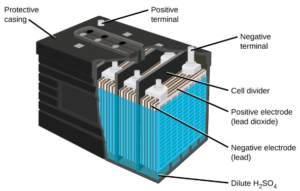NOC from MOEF (Ministry of Environment and Forest)
No Objection Certificate from Ministry of Environment and Forest
Importers of Electrical and Electronic Equipment’s, Spare Parts, Instruments etc. has to get an NOC from Ministry of Environment and Forest (MOEF) for conforming their End Use and identification as E-Waste or not prior to the Custom Clearance. One has to prepare a report to declare the Nature & Type of goods, Residual Life of the Equipment’s under Import w.r.t the guidelines of customs circular on HAZARDOUS WASTE (Management, Handling and Transboundary) Rules, 2008. After the satisfactory submission of the Report to MOEF, the imported then receives the NOC from MOEF. On the basis of this NOC, the clearance is initiated with customs authority.
Permission of MoEF in Import Export
In export import trade, permission from Ministry of Environment and Forest is required if such export or import goods contain hazardous wastes. In India, MoEF (Ministry of Environment and Forest) is the licensing authority to issue such certification. Necessary packing, labeling, quality, duties and responsibilities are to be maintained by the occupier.
The exporter or importer has to apply for certification with Ministry of Environment and Forest (MoEF) in specified format for importing/exporting hazardous/recyclable wastes to use as raw materials. The material permitted shall be fully insured for transit as well as for any accidental occurrence and its cleanup operation, the adequate facility to handle imported hazardous waste in the form of his raw material with details.

Hazardous Waste (Management, Handling and Tran boundary Movement)
This has reference to Public Notice No. 392 dated 01.01.1997, issued by the DGFT and Circular No. 20/2002-2007 dated 12.03.2003. As per the Hazardous Waste (Management, Handling and Tran boundary Movement) Rules, 2008 import of Plastic Waste is allowed with the permission of the Ministry of Environment & Forest (MoEF) Customs authorities have the responsibility to verify the documents, draw random samples prior to clearance of consignment, ensure that the consignment is accompanied by movement document, inform the Ministry about any illegal traffic and take action against the importer for violations under the Customs Act. Under the Rules, the conditions for import of plastic waste are:
(i) No import of hazardous waste from any country to India for disposal is permitted.
(ii) Import shall be only for the intended use of recycling or recovery use.
(iii) No Municipal Solid Wastes or Post Consumer Domestic Wastes or Bio-medical wastes or any other type of Hazardous waste shall be imported along with the plastic scrap. In case of any illegal imports, the consignment will have to be sent back to the exporting country and the importer shall bear the cost of such transportation.
(iv) Inventory of imported material will be maintained by the unit, including the details of exporter from where imported.
(v) Record of residue generated while recycling the imported plastic scrap should be maintained along with the quantity and characteristics of non-recyclable residue. These must be treated/disposed of as per the consent issued from time to time by the State Pollution Control Board in an environmentally sound manner.
(vi) No Objection from MoEF is valid till the validity of the consolidated consent order issued by concerned State Pollution Control Board.
As per the Public Notice No. 392 dated 01.01.1997 samples are required to be drawn from the imported consignments and sent to the nearest laboratory of CIPET for testing. In many cases, even a visual inspection by a layman would reveal that the consignments contain waste and scrap of plastic which has been put to use. Some of the pieces may have on them labels bar codes, tags etc. proving that they have been put to use. However, since plastic waste cannot be allowed to be imported mixing it with other waste or with plastic waste which is not virgin, as defined in Public Notice No. 392, it is essential that the samples are drawn properly and such pieces containing used plastic waste are invariably included in the samples. Conditions laid down in Hazardous Waste (Management, Handling and Transboundary Movement) Rules 2008 and Public Notice No. 392 dated 01.01.1997, issued by the DGFT need to be strictly adhered to in allowing import of plastic waste and scrap by all the importers including those in SEZs and EOUs.”
